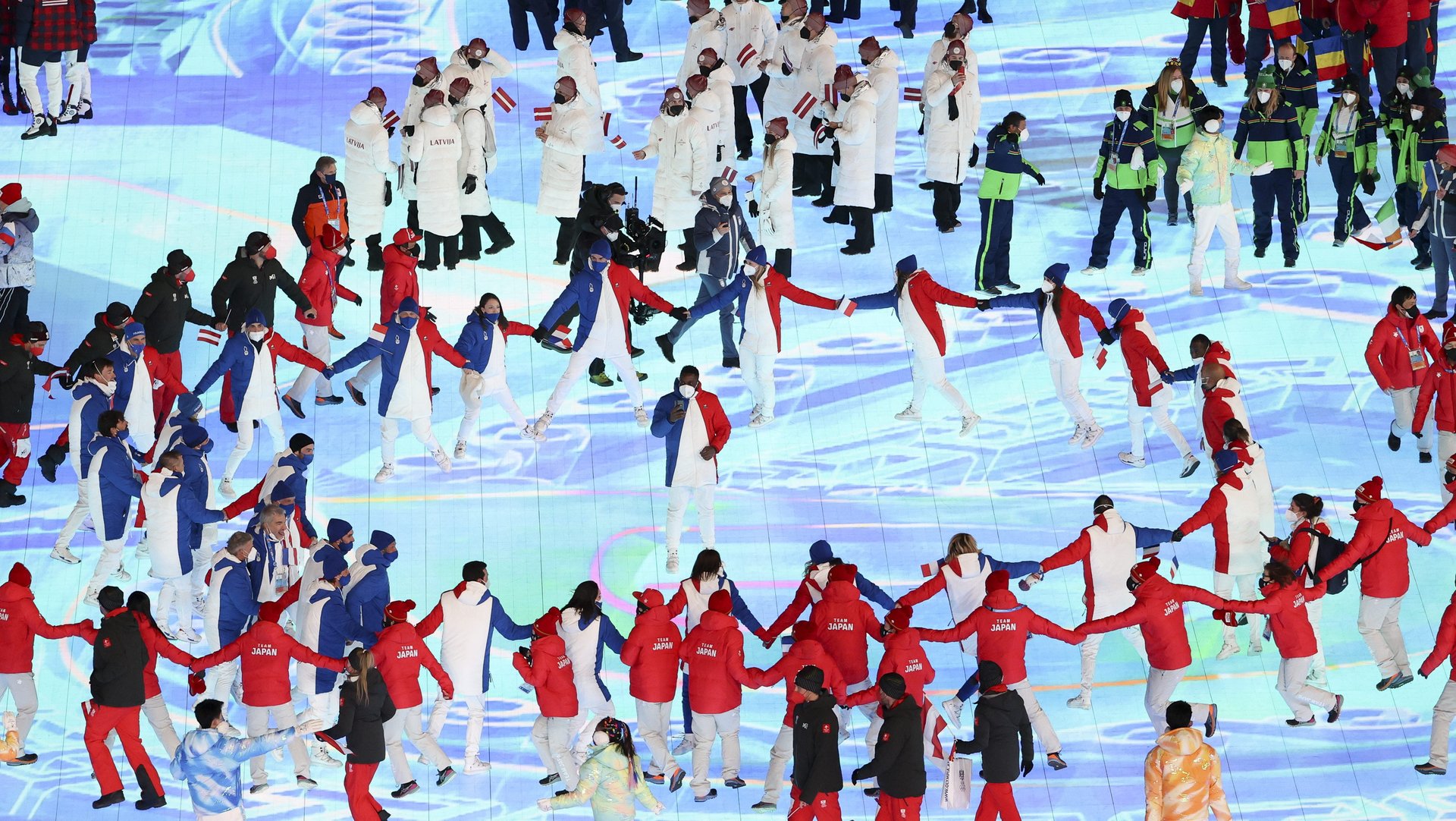China is spinning viewership for the Beijing Winter Olympics as a win
The 2022 Beijing Winter Olympics may have been overshadowed by geopolitical tensions, including a diplomatic boycott by countries including the US over human rights violations, and the prospect of Russian beginning a war in Ukraine. But they may also have been among the most watched Winter Games—at least in China.


The 2022 Beijing Winter Olympics may have been overshadowed by geopolitical tensions, including a diplomatic boycott by countries including the US over human rights violations, and the prospect of Russian beginning a war in Ukraine. But they may also have been among the most watched Winter Games—at least in China.
Around 600 million or nearly half of the country’s 1.4 billion population, watched the Games on TV, Timo Lumme, managing director of television and marketing for the International Olympic Committee, told a press conference (link in Chinese) last week. The opening ceremony of the Games, directed by renowned film director Zhang Yimou, was also the most viewed program in China since state broadcaster CCTV’s Spring Festival Gala in 2012, which was seen by nearly 500 million people, according to Lumme.
Outside China, over 140 million people in Japan watched the Games, according to state-owned Global Times. Even in the US, which didn’t send an official delegation due to concerns over China’s human rights abuses in Xinjiang, more than 100 million people watched the Games through networks on NBCUniversal, the media conglomerate that has exclusive broadcasting rights for the Olympics in the US through 2032.
Chinese media has been billing these Olympics as the most watched Winter Games globally, citing the IOC, but average daily primetime viewership for the Games in the US on NBC, cable or NBC’s Peacock streaming service was down 40% compared to the 2018 Winter Olympics in South Korea (which in turn were down from Sochi in 2014). The games did set a record in streaming minutes as viewing habits for sports change.
Lumme said he expected the total global audience to be around 2 billion, though the exact figure is yet to be determined. The total global audience for the Pyeongchang games in 2018 was 1.92 billion., while Sochi saw a global broadcast audience of 2.1 billion (pdf).
Beijing gives itself a medal for the Winter Olympics
China has sought to use the Olympics as a moment to rally national pride and shape the country as a responsible and leading power amid growing criticism of its policies from western countries.
The seemingly strong interest in the Games at home will be seen as a clear win by Beijing, which managed to keep public attention on the Games partly by promoting the achievements of athletes like freeskier Eileen Gu, who was born in the US but chose to compete for China. She won two gold medals for China during the Games, bringing China’s medal count to 15, including nine gold, a record high for the Winter Games for the country.
The Games’ mascot Bing Dwen Dwen—a panda clad in a transparent shell—became a focus for state media, which reported in detail on the toy’s popularity among foreign athletes and journalists.
In an editorial today (Feb. 21), People’s Daily, the most important government outlet, said the Games were an “injection of faith and power” for a world that is grappling with covid-19, and a testament to China’s standing in the world.
“Facing the future, China will always be on the right side of the history, on the side of humans’ advancements, be a builder of world peace, and a contributor to global development,” it said.